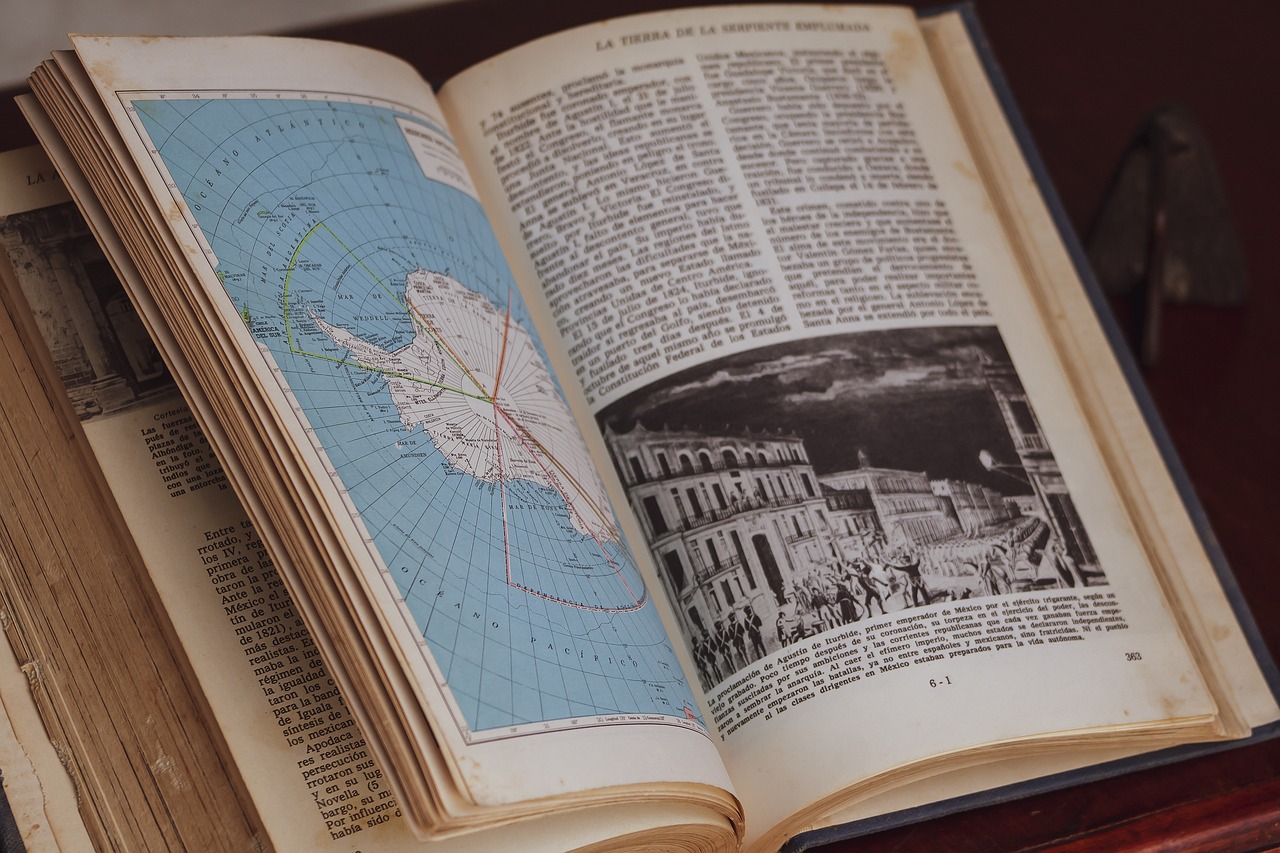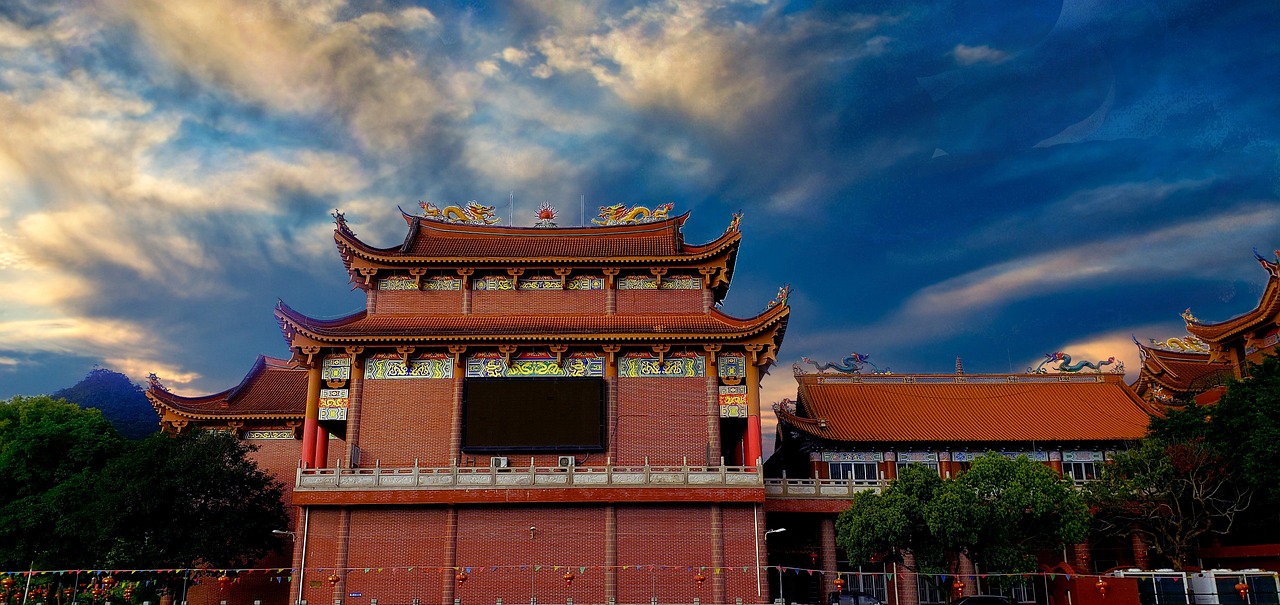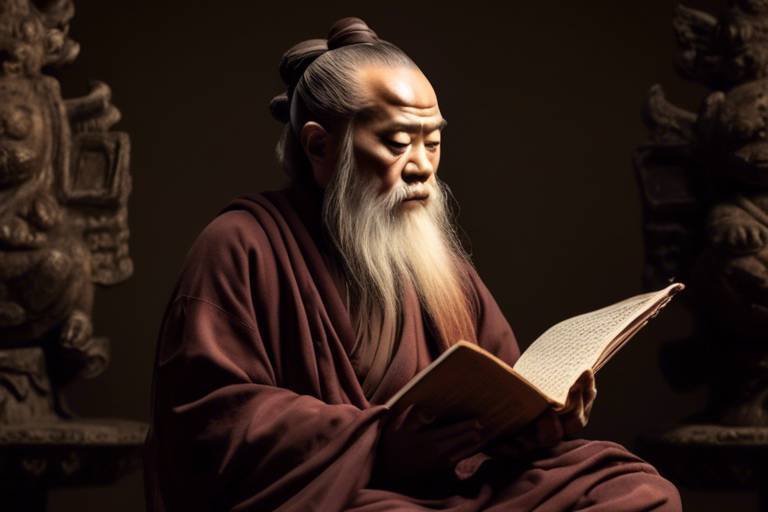Understanding the Core Concepts of Eastern Philosophy
Eastern philosophy is a vast and intricate tapestry woven from the thoughts, beliefs, and practices of various cultures over millennia. Unlike Western philosophy, which often emphasizes rationalism and individualism, Eastern philosophy tends to focus on the interconnectedness of all things, the importance of community, and the pursuit of harmony. It invites us to explore profound questions about existence, morality, and our place in the universe. But what does it really mean to delve into this rich tradition?
At its core, Eastern philosophy encompasses a variety of traditions, each with its unique perspectives and teachings. From the ancient wisdom of Indian Vedic texts to the profound insights of Chinese Daoism and the ethical frameworks established by Confucianism, the landscape is diverse and complex. This article aims to illuminate the fundamental ideas and principles that shape Eastern philosophy, offering readers a comprehensive overview of its historical context, key figures, and modern relevance.
One of the most captivating aspects of Eastern philosophy is its historical backdrop. Emerging from ancient civilizations like India and China, these philosophical systems were often shaped by cultural exchanges and the evolution of thought across different regions. For instance, the teachings of Siddhartha Gautama, known as the Buddha, not only transformed the spiritual landscape of India but also spread to neighboring countries, influencing their cultures and philosophies.
As we journey through this exploration, we'll encounter key figures who have left an indelible mark on Eastern thought. Think of Confucius, whose teachings on ethics and social harmony continue to resonate in modern societies, or Laozi, the enigmatic founder of Daoism, whose concepts of naturalness and harmony with the universe inspire countless individuals today. These thinkers provide a lens through which we can better understand the philosophical traditions that have shaped the East.
In addition, we will compare Eastern and Western philosophies, revealing both their differences and similarities. While Western thought often emphasizes individual rights and rationality, Eastern philosophies tend to highlight community, relational ethics, and the significance of harmony in human interactions. This comparative analysis will help illuminate how these two traditions approach fundamental questions about existence, morality, and the nature of reality.
As we delve deeper into the impact of Eastern philosophy on modern thought, we will uncover its influence in various fields, including psychology and environmental ethics. Concepts such as mindfulness and meditation, rooted in Eastern traditions, have gained immense popularity in the West, offering psychological benefits and spiritual fulfillment. Furthermore, the Eastern perspective on nature emphasizes interconnectedness and sustainability, providing valuable insights into contemporary ecological challenges.
In summary, understanding Eastern philosophy is not just about grasping its historical context or key figures; it's about engaging with a way of thinking that challenges us to reflect on our lives and our relationships with others and the world around us. So, are you ready to embark on this enlightening journey into the heart of Eastern thought?
- What is Eastern philosophy? Eastern philosophy refers to a variety of philosophical traditions originating in East Asia and South Asia, including Hinduism, Buddhism, Daoism, and Confucianism.
- How does Eastern philosophy differ from Western philosophy? Eastern philosophy often emphasizes community, relational ethics, and harmony, while Western philosophy typically focuses on individualism and rationality.
- Who are some key figures in Eastern philosophy? Notable philosophers include Confucius, Laozi, and Siddhartha Gautama (the Buddha).
- What is the significance of mindfulness in Eastern philosophy? Mindfulness, rooted in Buddhist practices, promotes awareness and presence, offering psychological and spiritual benefits.
- How can Eastern philosophy influence modern life? Eastern philosophical concepts can inform ethical decision-making, enhance mental well-being, and inspire sustainable living practices.

The Historical Context of Eastern Philosophy
To truly grasp the essence of Eastern philosophy, it's essential to understand the historical backdrop from which it emerged. This rich tapestry of thought didn't develop in isolation; rather, it was influenced by a myriad of ancient civilizations, cultural exchanges, and evolving ideas across regions such as India, China, and Japan. Each of these areas contributed unique perspectives that shaped the philosophical landscape.
Let's take a journey back in time. In ancient India, the roots of philosophy can be traced back to the Vedic texts, which laid the groundwork for Hindu philosophy. These texts introduced concepts such as dharma (duty), karma (action and its consequences), and moksha (liberation from the cycle of rebirth). The influence of these ideas cannot be understated, as they continue to resonate in modern spiritual and ethical discussions.
Meanwhile, in China, the philosophical landscape was vibrant with the teachings of various schools of thought. The emergence of Confucianism and Daoism around the same time (approximately the 5th century BCE) marked a significant shift in how individuals viewed their roles within society and the universe. Confucius emphasized moral virtues and social harmony, while Laozi, the founder of Daoism, highlighted the importance of living in accordance with the Dao (the Way), advocating for a life of simplicity and naturalness.
As these philosophies developed, they were not static; they were shaped by cultural exchanges through trade routes like the Silk Road, which connected the East and West. This interaction allowed for the flow of ideas, art, and technology, blending different cultural philosophies and leading to the evolution of thought. For instance, the introduction of Buddhism from India to China in the 1st century CE brought a new dimension to Eastern philosophy, emphasizing concepts such as impermanence and the Middle Way.
In Japan, the integration of these philosophies with indigenous beliefs led to the creation of unique schools of thought, such as Shintoism and the adaptation of Zen Buddhism. This synthesis created a rich philosophical tradition that emphasized harmony with nature and the importance of ritual.
As we can see, the historical context of Eastern philosophy is a complex interplay of ideas and cultural exchanges. It is a testament to how interconnected our world has always been, even in ancient times. The evolution of these thoughts not only shaped the societies in which they flourished but also laid the groundwork for modern philosophical discourse. Today, we continue to draw from these ancient teachings, finding relevance in their wisdom as we navigate the complexities of contemporary life.
- What are the main differences between Eastern and Western philosophy? Eastern philosophy often emphasizes community and relational ethics, while Western philosophy tends to focus on individual rights and rationality.
- Who are the key figures in Eastern philosophy? Important figures include Confucius, Laozi, and Siddhartha Gautama, each contributing significantly to the philosophical landscape.
- How has Eastern philosophy influenced modern thought? Concepts from Eastern philosophy, such as mindfulness and environmental ethics, have significantly impacted contemporary psychology and global spirituality.

Key Figures in Eastern Philosophy
Eastern philosophy is a vast and intricate tapestry woven from the thoughts and teachings of numerous influential figures. Each philosopher has contributed unique insights that have shaped the philosophical landscape of the East. Among the most notable are Confucius, Laozi, and Siddhartha Gautama, commonly known as the Buddha. These thinkers not only addressed the ethical and metaphysical questions of their time but also laid down principles that continue to resonate with modern society.
Confucius (551-479 BCE) is perhaps one of the most recognized figures in Eastern philosophy. His teachings emphasized the importance of ethics, virtue, and social harmony. Confucius argued that a well-ordered society is built upon strong familial relationships and moral integrity. His ideas on governance, particularly the concept of moral leadership, have influenced political systems across East Asia. For instance, Confucian principles have been integrated into the governance of countries like China, Korea, and Japan, promoting the idea that rulers should be virtuous and prioritize the welfare of their people.
Another towering figure is Laozi, the founder of Daoism, who is believed to have lived around the 6th century BCE. Laozi's work, the Dao De Jing, introduces the concept of the Dao, or "the Way," which emphasizes living in harmony with the natural world. His philosophy encourages individuals to embrace simplicity and spontaneity, advocating for a life that flows with the rhythms of nature rather than against them. This perspective has profound implications for how we view our relationship with the environment and our place within it.
The teachings of Siddhartha Gautama, or the Buddha, represent another cornerstone of Eastern philosophy. Emerging in the 5th century BCE, the Buddha's insights into suffering, impermanence, and the nature of reality have led to the development of Buddhism, which has spread across Asia and beyond. His Four Noble Truths and the Eightfold Path provide a framework for understanding the human condition and achieving enlightenment. The Buddha’s emphasis on mindfulness and meditation has also gained significant traction in contemporary society, influencing various psychological practices and wellness routines.
In addition to these prominent figures, Eastern philosophy is rich with other influential thinkers. The interplay of their teachings has created a diverse intellectual heritage that invites exploration. For instance, philosophers such as Zhuangzi and Nagarjuna have also made significant contributions, each adding layers of complexity to Eastern thought. Zhuangzi's writings challenge conventional wisdom and promote a sense of relativism, while Nagarjuna's work on emptiness has deeply influenced Buddhist philosophy.
To summarize, the key figures in Eastern philosophy not only address the profound questions of existence but also offer practical guidance for living a harmonious life. Their teachings continue to inspire and provide valuable insights into ethics, governance, and the human experience, making them essential figures in understanding the philosophical traditions of the East.
- Who is the most influential philosopher in Eastern philosophy? While many philosophers have made significant contributions, Confucius is often regarded as one of the most influential figures due to his impact on ethics and governance.
- What is the main idea of Daoism? Daoism emphasizes living in harmony with the Dao, or the natural order of the universe, advocating for simplicity and spontaneity.
- How did Buddhism influence modern thought? Buddhism has popularized concepts such as mindfulness and meditation, which are now widely used in psychological practices and personal wellness.

Confucius and His Teachings
Confucius, or Kong Fuzi, was not just a philosopher; he was a revolutionary thinker whose ideas have rippled through time, influencing countless generations. Born in 551 BCE in the state of Lu, which is now part of modern-day China, Confucius lived during a period of social upheaval and moral decay. His teachings, rooted in the pursuit of virtue and social harmony, sought to restore order in society. He emphasized the importance of ethics, morality, and the cultivation of personal character, which are just as relevant today as they were over two millennia ago.
At the heart of Confucian philosophy lies the concept of Ren, often translated as "benevolence" or "humaneness." This principle advocates for kindness and compassion in all human interactions. Confucius believed that by practicing Ren, individuals could foster harmonious relationships within their families and communities. He famously stated, "What you do not wish for yourself, do not do to others," encapsulating the essence of his ethical teachings.
Another key aspect of Confucius's philosophy is the idea of Li, which refers to ritual, propriety, and the correct way of doing things. Li encompasses not just formal rituals but also the everyday behaviors that foster respect and harmony. For Confucius, adhering to Li was essential for maintaining social order and personal integrity. Imagine a well-tuned orchestra; each musician plays their part according to the conductor’s direction, creating a beautiful symphony. Similarly, when individuals practice Li, society functions smoothly.
Confucius also placed immense value on education. He believed that through learning, individuals could cultivate their character and contribute positively to society. His famous quote, "Is it not a joy to have friends come from afar?" illustrates his belief in the joy of learning and sharing knowledge. Education was not just about acquiring facts; it was about developing moral character and wisdom.
Filial piety, or Xiao, is another cornerstone of Confucian thought. It refers to the deep respect and devotion that children owe to their parents and ancestors. Confucius taught that honoring one's family is essential for societal harmony. In a world that often feels disconnected, the value of filial piety reminds us of the importance of family bonds. It’s like the roots of a tree; they may not be visible, but they provide the stability and nourishment that allow the tree to flourish.
Confucius's teachings have profoundly influenced governance in East Asia. His advocacy for moral leadership and the importance of education in public service laid the groundwork for many political systems. Rulers were expected to govern with virtue and wisdom, prioritizing the welfare of their people. This concept is akin to a gardener tending to their plants; a good leader nurtures their citizens, fostering growth and prosperity. In modern times, many East Asian countries still reflect Confucian ideals in their governance, promoting ethical leadership and community well-being.
In summary, Confucius's teachings are a rich tapestry woven with the threads of ethics, education, and familial respect. His philosophy encourages us to cultivate virtue within ourselves and to engage with our communities in meaningful ways. As we navigate the complexities of modern life, revisiting these ancient principles can provide valuable guidance. After all, the wisdom of Confucius is not just a relic of the past; it is a living tradition that continues to inspire and challenge us today.
- What is the main focus of Confucian philosophy?
Confucian philosophy primarily focuses on ethics, morality, and the importance of social harmony through proper relationships. - How does Confucius view education?
Confucius viewed education as a vital tool for personal development and societal improvement, emphasizing the cultivation of moral character. - What is filial piety, and why is it important?
Filial piety is the respect and devotion children owe to their parents and ancestors, crucial for maintaining family structure and societal stability. - How has Confucianism influenced modern governance?
Confucianism has influenced modern governance by promoting moral leadership, ethical behavior, and the importance of education in public service.

The Role of Filial Piety
Filial piety, or xiào (孝) in Chinese, is a cornerstone of Confucian philosophy that emphasizes the importance of respecting and honoring one's parents and ancestors. This concept is not merely a cultural artifact; it is a living principle that shapes family dynamics and societal structures across many East Asian cultures. Imagine a tree with deep roots; filial piety is that root system, anchoring families and communities while providing the nutrients necessary for growth and stability. In a world that often feels chaotic, this principle offers a sense of continuity and connection.
At its core, filial piety encompasses several key elements that are integral to understanding its significance:
- Respect and Honor: Children are expected to show deep respect for their parents, acknowledging their sacrifices and wisdom. This respect is not limited to words but is expressed through actions, such as caring for aging parents and honoring their wishes.
- Family Loyalty: Filial piety fosters a sense of loyalty and commitment within families. It encourages individuals to prioritize family needs and uphold family honor, often placing familial obligations above personal desires.
- Ancestral Reverence: Beyond immediate family, filial piety extends to honoring ancestors. Rituals and practices that pay homage to those who came before us are seen as essential for maintaining harmony and balance within the family lineage.
This principle has profound implications for societal stability. In Confucian thought, the family is viewed as a microcosm of society. When family relationships are strong and harmonious, it is believed that society as a whole will reflect these values. Thus, filial piety plays a crucial role in maintaining social order and promoting ethical behavior. In contemporary cultures, we can still see the echoes of this ancient philosophy in the way families interact and support one another.
Moreover, filial piety is not a static concept; it evolves with the times. In today's fast-paced world, the challenge lies in balancing traditional values with modern lifestyles. Many young people find themselves navigating the complexities of career demands while still honoring their familial obligations. This dynamic can lead to tension, but it also creates opportunities for dialogue and growth within families. As we adapt these ancient teachings to our modern context, we can find new ways to express respect and care for our parents and elders.
In conclusion, filial piety is more than just a cultural norm; it is a vital principle that fosters respect, loyalty, and continuity within families and societies. As we reflect on our own relationships, we can ask ourselves: How can we embody this principle in our daily lives? The answer may lie in small, everyday actions that honor our parents and ancestors, ensuring that the roots of our family trees remain strong and vibrant.
- What is the origin of filial piety?
Filial piety originates from Confucianism, a philosophical system established by Confucius in ancient China, which emphasizes moral integrity and proper social relationships. - How does filial piety manifest in modern society?
In modern society, filial piety can be seen in various forms, such as caring for elderly parents, honoring family traditions, and participating in ancestral rituals. - Is filial piety relevant in Western cultures?
While the concept may not be as pronounced as in Eastern cultures, many Western societies value respect for parents and family loyalty, albeit often framed differently.

Confucianism’s Influence on Governance
Confucianism, with its rich tapestry of ethical teachings and moral philosophy, has significantly shaped governance in various East Asian countries. At its core, Confucianism emphasizes the importance of moral leadership and the role of virtuous rulers in creating a harmonious society. This philosophy posits that the character of leaders directly influences the well-being of the state and its citizens. In essence, a ruler’s moral integrity is seen as the bedrock of effective governance.
One of the key tenets of Confucian governance is the idea of meritocracy. Confucius advocated for a system where individuals are appointed to positions of power based on their abilities and moral character rather than their social status or wealth. This principle has been instrumental in shaping civil service systems in countries like China, where the imperial examination system was established to ensure that only the most qualified individuals could serve in government roles. The emphasis on education and moral development has created a culture where leaders are expected to be not only knowledgeable but also ethically sound.
Moreover, Confucianism promotes the concept of filial piety and respect for authority, which extends to governance. This respect for hierarchy and order has fostered a sense of duty among citizens towards their leaders, encouraging social stability. In Confucian thought, the relationship between the ruler and the ruled is akin to that of a parent and child, where the ruler is expected to act benevolently and justly, while the subjects owe loyalty and respect in return. This mutual obligation forms the foundation of a well-functioning society.
To illustrate the impact of Confucian values on governance, let's look at some key aspects:
| Aspect | Description |
|---|---|
| Moral Leadership | Leaders are expected to be virtuous, setting a moral example for their subjects. |
| Meritocracy | Positions of power are awarded based on ability and ethics, not social class. |
| Filial Piety | Encourages respect for authority and social harmony through mutual obligations. |
Confucianism's influence can also be seen in modern governance structures, where the principles of ethical leadership and community-oriented policies are increasingly valued. Countries like South Korea and Japan have integrated Confucian ideals into their political frameworks, emphasizing the importance of education and moral integrity in public service. This legacy continues to resonate, as leaders are often held accountable not only for their policies but also for their character and ethical standards.
In conclusion, Confucianism has left an indelible mark on governance in East Asia. By advocating for moral integrity, merit-based leadership, and the importance of social harmony, Confucian principles have shaped political systems that prioritize ethical conduct and the welfare of the community. As we navigate the complexities of modern governance, the teachings of Confucius remind us that the heart of effective leadership lies in virtue and the commitment to serve the greater good.
- What is Confucianism? Confucianism is a philosophical and ethical system based on the teachings of Confucius, emphasizing morality, social relationships, and justice.
- How does Confucianism influence modern governance? Confucianism promotes moral leadership, meritocracy, and respect for authority, which have shaped governance structures in various East Asian countries.
- What role does education play in Confucian thought? Education is vital in Confucianism, as it is believed to cultivate virtue and prepare individuals for leadership roles in society.

Laozi and Daoism
Laozi, often recognized as the founder of Daoism, is a towering figure in Eastern philosophy whose teachings continue to resonate deeply in contemporary society. His seminal work, the Dao De Jing, encapsulates profound wisdom about the nature of existence, urging individuals to embrace simplicity, humility, and the natural flow of life. At the heart of Laozi's philosophy is the concept of the Dao, or "the Way," which represents the fundamental principle that underlies and unites all things in the universe. Imagine the Dao as a river, flowing effortlessly and adapting to the contours of the land; it teaches us to go with the flow rather than resist the currents of life.
Central to Daoism is the idea of naturalness (ziran), which emphasizes living in harmony with the natural world. Laozi posits that by aligning ourselves with the Dao, we can achieve a state of balance and tranquility. This perspective invites us to question our often chaotic and stressful lifestyles, encouraging a return to simplicity and an appreciation for the beauty of the natural world. In a society that often prizes ambition and competition, Laozi’s teachings remind us that true strength lies in yielding and adaptability.
One of the most intriguing aspects of Laozi's philosophy is the concept of wu wei, which translates to "non-action" or "effortless action." This does not imply passivity; rather, it advocates for an approach to life that is in tune with the natural rhythms of the universe. Think of it as dancing with the flow of life rather than trying to control it. By practicing wu wei, individuals can navigate challenges with grace and ease, allowing solutions to emerge organically rather than forcing outcomes.
Daoism also emphasizes the importance of interconnectedness. Laozi teaches that everything in the universe is interrelated, and our actions have ripple effects on the world around us. This holistic view encourages a deep respect for nature and an understanding that our well-being is tied to the well-being of the environment. In a time when ecological concerns are at the forefront of global discussions, Laozi's insights serve as a reminder of the need for sustainable living and a harmonious relationship with nature.
In essence, Laozi and Daoism invite us to explore a different way of being—one that values balance, harmony, and simplicity. As we navigate the complexities of modern life, these teachings offer a refreshing perspective, encouraging us to slow down, reflect, and align ourselves with the natural order of the universe. By embracing the wisdom of Laozi, we can cultivate a deeper sense of peace and fulfillment in our lives.
- What is the Dao according to Laozi? The Dao, or "the Way," is the fundamental principle that underlies the universe, representing the natural order and flow of life.
- What does wu wei mean? Wu wei translates to "non-action" or "effortless action," advocating for a way of living that aligns with the natural rhythms of the universe.
- How does Daoism view nature? Daoism emphasizes interconnectedness and promotes a harmonious relationship with nature, highlighting the importance of sustainability and respect for the environment.
- What is the significance of naturalness (ziran) in Daoism? Naturalness encourages individuals to live authentically and simply, in harmony with the world around them.

Comparative Analysis with Western Philosophy
When we delve into the realms of Eastern and Western philosophy, it’s like peering into two distinct worlds, each with its own lens through which to view life, ethics, and existence. Eastern philosophy often emphasizes **community**, **interconnectedness**, and the **relational aspects** of ethics, whereas Western philosophy tends to spotlight the **individual**, **rationality**, and **personal rights**. This fundamental difference creates a rich tapestry of thought that has evolved over centuries, shaped by cultural, historical, and social contexts.
One of the striking contrasts between these two traditions lies in their approach to **ethics**. In Eastern thought, ethical frameworks are frequently rooted in the idea of harmony and balance within the community. For instance, Confucianism prioritizes social relationships and the concept of **filial piety**, which underscores the importance of respecting and honoring family ties. This is in stark contrast to Western ethical theories, such as those proposed by Kant or Mill, which focus more on the **autonomy of the individual** and the importance of rational decision-making. In a sense, it’s as if Eastern philosophy invites us to dance in a communal circle, while Western philosophy encourages us to shine as individuals on a stage.
Moreover, when discussing **metaphysics**, Eastern philosophy presents a fascinating perspective that often blurs the lines between reality and illusion. Concepts such as **Maya** in Hinduism suggest that the material world is an illusion, urging individuals to seek a deeper truth beyond sensory experiences. This contrasts sharply with Western metaphysical views, which typically regard existence as a tangible reality that can be studied and understood through empirical means. In the West, philosophers like Descartes and Locke have laid the groundwork for a more materialistic understanding of existence, where the focus is on substance and the nature of being.
To illustrate these differences, consider the following table that summarizes key aspects of Eastern and Western philosophies:
| Aspect | Eastern Philosophy | Western Philosophy |
|---|---|---|
| Ethics | Community and relational ethics | Individual rights and rationality |
| Metaphysics | Reality as illusion (e.g., Maya) | Focus on substance and existence |
| View of Self | Interconnected self with the universe | Autonomous individual |
| Knowledge | Intuition and experiential understanding | Logical reasoning and empirical evidence |
Despite these differences, it’s essential to recognize that both traditions offer profound insights into the human experience. They are not mutually exclusive; rather, they can complement each other in various ways. For instance, the **mindfulness** practices rooted in Buddhism have found a significant following in the West, blending Eastern concepts of awareness with Western psychological practices. This fusion exemplifies how philosophical ideas can transcend cultural boundaries and enrich our understanding of life.
As we navigate through these philosophical waters, it’s crucial to appreciate the **value** each tradition brings. Eastern philosophy encourages us to consider the broader implications of our actions on the community and the environment, while Western philosophy pushes us to challenge norms and think critically about our beliefs. In a world that often feels divided, perhaps the greatest lesson we can learn from this comparative analysis is the importance of dialogue and understanding between these two rich traditions.
- What are the main differences between Eastern and Western philosophy?
Eastern philosophy emphasizes community and interconnectedness, while Western philosophy focuses on individualism and rationality. - How does Eastern philosophy influence modern practices?
Practices like mindfulness and meditation have gained popularity in the West, rooted in Eastern philosophical traditions, providing psychological and spiritual benefits. - Can Eastern and Western philosophies coexist?
Absolutely! These philosophies can complement each other and offer a more holistic understanding of human existence when integrated thoughtfully.

Ethics in Eastern vs. Western Thought
When we dive into the intricate world of ethics, we uncover a fascinating landscape shaped by cultural nuances and philosophical traditions. Eastern and Western philosophies offer distinct frameworks for understanding morality, revealing their unique approaches to ethics. At the heart of Eastern ethics lies a profound emphasis on community and relational dynamics, while Western thought often champions the ideals of individual rights and rationality. This divergence can be seen as a reflection of their respective cultural values and historical contexts.
In Eastern traditions, particularly within Confucianism, ethics is deeply intertwined with social harmony and familial relationships. Confucius taught that virtue is not merely a personal endeavor but a communal one, where the well-being of the family and society takes precedence. This perspective fosters a sense of duty and responsibility towards others, promoting values like filial piety and respect for elders. On the other hand, Western ethics, influenced by Enlightenment thinkers such as Kant and Mill, tends to prioritize the individual’s autonomy and the pursuit of personal happiness. This focus on individualism encourages a framework where moral decisions are often evaluated based on rights and freedoms.
To illustrate the differences more clearly, consider the following table that summarizes key aspects of ethical thought in both traditions:
| Aspect | Eastern Ethics | Western Ethics |
|---|---|---|
| Focus | Community and Relationships | Individual Rights and Autonomy |
| Key Values | Harmony, Duty, Filial Piety | Liberty, Justice, Rationality |
| Moral Decision-Making | Relational Context | Universal Principles |
| Ethical Frameworks | Confucianism, Buddhism | Kantianism, Utilitarianism |
This table highlights the contrasting emphases in ethical reasoning, showcasing how cultural contexts shape moral frameworks. In Eastern thought, ethical considerations often arise from the interconnectedness of individuals within a community, leading to a holistic approach to morality. In contrast, Western ethics frequently adopts a more analytical and rule-based approach, where moral dilemmas are dissected through logical reasoning and individual rights.
Moreover, the implications of these ethical frameworks extend beyond personal conduct; they influence societal structures and institutions. For instance, in many Eastern societies, the emphasis on community well-being can be seen in policies that prioritize collective welfare over individual gain. Conversely, Western societies often celebrate individual achievements, leading to systems that reward personal success and innovation.
As we navigate through these philosophical landscapes, it becomes clear that both Eastern and Western ethics offer valuable insights. Understanding these differences not only enriches our appreciation of diverse cultures but also encourages a more nuanced approach to global ethical discussions. So, whether you're pondering your responsibilities towards family or grappling with the rights of the individual, remember that these philosophical traditions provide a treasure trove of perspectives to guide us.
- What is the main difference between Eastern and Western ethics?
Eastern ethics focuses on community and relationships, while Western ethics emphasizes individual rights and rationality. - How does Confucianism influence ethical thought?
Confucianism promotes values such as harmony, duty, and filial piety, which shape moral behavior in social contexts. - Can Eastern and Western ethics coexist?
Yes, combining insights from both traditions can lead to a more comprehensive understanding of ethical dilemmas.

Metaphysical Perspectives
When we dive into the world of metaphysics in Eastern philosophy, we find ourselves navigating through a rich tapestry of ideas that challenge our understanding of reality. Unlike the Western approach, which often leans heavily on the notion of substance and existence as concrete entities, Eastern metaphysical thought embraces a more fluid understanding of reality. This perspective is not just a philosophical exercise; it’s a way of life that influences how individuals perceive their place in the universe.
One of the most profound concepts in Eastern metaphysics is the idea of illusion or maya, especially prevalent in Hindu philosophy. This notion suggests that what we perceive as reality is merely a veil that obscures a deeper truth. To illustrate, think of a movie projection: the images on the screen are captivating, but they are just shadows of the actual film reel. In this light, the goal of philosophical inquiry becomes a journey to peel back these layers of illusion, seeking to understand the true essence of existence.
In contrast, Buddhist metaphysics introduces the concept of emptiness (śūnyatā), which posits that all phenomena are interdependent and lack inherent existence. This idea challenges the very foundation of how we define objects and selves. Instead of seeing things as isolated entities, Buddhism encourages us to recognize the interconnected web of existence. This perspective can be likened to a vast ocean where every wave is distinct yet part of a greater whole. Each wave rises and falls, yet its essence is inseparable from the ocean itself.
Furthermore, the Daoist viewpoint, as articulated by Laozi, introduces the concept of the Dao (or "Way"), which is the fundamental principle that underlies and unites all things in the universe. The Dao is not something that can be fully defined or grasped; rather, it is an ever-flowing force that guides the natural order of life. In Daoism, the focus is on aligning oneself with this natural flow, akin to a leaf drifting on a river, effortlessly moving with the current while remaining connected to the larger ecosystem.
To summarize, Eastern metaphysical perspectives invite us to reconsider our assumptions about reality. They challenge us to think beyond the surface and explore the deeper connections that bind us to the universe. The following table encapsulates some key differences between Eastern and Western metaphysical views:
| Aspect | Eastern Philosophy | Western Philosophy |
|---|---|---|
| Nature of Reality | Fluid and interdependent | Concrete and independent |
| Understanding of Self | Interconnectedness with all | Individualism and separation |
| Concept of Illusion | Maya (illusion) | Reality as objective |
| Ultimate Goal | Realization of unity | Understanding of existence |
As we reflect on these metaphysical perspectives, it becomes clear that they offer profound insights into our existence and the nature of reality. They challenge us to look beyond the ordinary and embrace a more holistic understanding of life. So, the next time you find yourself pondering the mysteries of existence, consider the wisdom of Eastern philosophy as a guiding light on your journey.
- What is the main difference between Eastern and Western metaphysics?
Eastern metaphysics often emphasizes interconnectedness and the illusion of separateness, while Western metaphysics typically focuses on individual substances and their properties. - How can Eastern metaphysical concepts be applied in daily life?
Practicing mindfulness and recognizing the interconnectedness of all beings can lead to a more harmonious and fulfilling life. - What role does meditation play in understanding Eastern metaphysics?
Meditation helps individuals experience the concepts of emptiness and the Dao firsthand, fostering a deeper understanding of their true nature.

The Impact of Eastern Philosophy on Modern Thought
Eastern philosophy has profoundly shaped modern thought, weaving its intricate patterns through various domains such as psychology, environmental ethics, and global spirituality. As we navigate through the complexities of contemporary life, the wisdom derived from Eastern traditions offers a refreshing perspective that encourages us to look beyond the materialistic confines of Western thought. Have you ever felt overwhelmed by the fast pace of life? Well, the teachings of Eastern philosophy might just hold the key to finding balance and tranquility.
One of the most significant contributions of Eastern philosophy to modern society is the popularization of mindfulness and meditation. These practices, deeply rooted in Buddhist traditions, have transcended cultural boundaries and entered the mainstream consciousness in the West. Mindfulness encourages individuals to live in the moment, fostering a sense of awareness that can alleviate stress and anxiety. As more people embrace these practices, mental health professionals are increasingly incorporating them into therapeutic settings, leading to positive outcomes for many. Imagine a world where everyone takes a moment to breathe and reconnect with themselves—sounds ideal, doesn’t it?
Moreover, Eastern philosophies emphasize the interconnectedness of all beings and nature, which has significant implications for environmental ethics. In a time when ecological crises loom large, the teachings of figures like Laozi remind us that we are part of a larger whole. The concept of Dao in Daoism encourages harmony with nature, urging us to respect and protect our environment. This perspective is crucial as we face challenges like climate change and biodiversity loss. By recognizing our interconnectedness, we can foster a more sustainable approach to living that honors both the planet and future generations.
To illustrate the impact of Eastern philosophy on modern thought, consider the following table that highlights key areas of influence:
| Area of Influence | Eastern Philosophy Contribution | Modern Application |
|---|---|---|
| Psychology | Mindfulness and meditation practices | Therapeutic settings, stress reduction |
| Environmental Ethics | Interconnectedness and harmony with nature | Sustainable living practices, ecological awareness |
| Global Spirituality | Emphasis on inner peace and community | Holistic wellness movements, spiritual retreats |
As we delve deeper into the impact of Eastern philosophy, it becomes clear that its principles resonate with a growing number of people seeking meaning and purpose in their lives. The shift towards a more holistic understanding of existence encourages us to embrace compassion, empathy, and a sense of responsibility towards one another and the planet. Isn't it fascinating how ancient wisdom can still guide us through the complexities of modern life?
In conclusion, the influence of Eastern philosophy on modern thought is not just a passing trend; it is a profound movement that invites us to rethink our values and priorities. By integrating these timeless teachings into our daily lives, we can cultivate a greater sense of peace, purpose, and connection. So, why not take a moment today to reflect on how these philosophies can enrich your life?
- What is mindfulness? Mindfulness is the practice of being fully present in the moment, which can help reduce stress and improve mental well-being.
- How can Eastern philosophy help with environmental issues? Eastern philosophies emphasize the interconnectedness of all life, encouraging sustainable practices and respect for nature.
- Can meditation really improve mental health? Yes, numerous studies have shown that meditation can lead to reductions in anxiety, depression, and overall stress levels.

Mindfulness and Meditation Practices
In recent years, mindfulness and meditation have surged in popularity, particularly in the West, but their roots run deep in Eastern philosophy, especially within Buddhism. These practices are not just trendy buzzwords; they represent profound ways to connect with oneself and the world. Imagine for a moment that your mind is like a computer desktop, cluttered with open tabs and notifications. Mindfulness acts as the tool that helps you close those tabs, allowing for clarity and focus. Meditation, on the other hand, is akin to hitting the refresh button, clearing out the mental clutter and providing a fresh start.
The essence of mindfulness lies in being fully present in the moment, aware of your thoughts, feelings, and surroundings without judgment. This practice encourages you to observe your experiences rather than get lost in them. For instance, when you eat a meal mindfully, you savor each bite, noticing the flavors and textures, rather than rushing through it while scrolling on your phone. This simple act can transform mundane moments into rich experiences.
On the other hand, meditation encompasses various techniques that promote relaxation and self-awareness. Some of the most commonly practiced forms include:
- Focused Attention Meditation: Concentrating on a single point, such as the breath, a mantra, or an object.
- Body Scan Meditation: A practice that involves scanning your body for areas of tension and consciously relaxing them.
- Mindfulness Meditation: Involves observing thoughts and feelings without attachment, allowing them to pass like clouds in the sky.
The psychological benefits of these practices are well-documented. Research shows that regular mindfulness and meditation can lead to reduced stress, enhanced emotional regulation, and greater overall well-being. It’s like giving your mind a workout; just as your body benefits from physical exercise, your mind flourishes with mental training. Moreover, these practices foster a sense of interconnectedness with others and the environment, echoing the Eastern philosophical view that all beings are part of a larger whole.
As we navigate the complexities of modern life—characterized by rapid technological advancements and constant distractions—integrating mindfulness and meditation into our daily routines can serve as a powerful antidote. Just imagine starting your day with a short meditation session, setting a positive tone that echoes throughout your activities. Or consider taking a few moments of mindfulness during a hectic day to recenter yourself, making you more effective and present in your interactions.
In conclusion, the practices of mindfulness and meditation are not merely ancient relics but vital tools for navigating the modern world. They invite us to slow down, breathe, and reconnect with ourselves and our surroundings. As we delve deeper into these practices, we uncover not only a path to personal peace but also a bridge to understanding the interconnectedness of all life, a core tenet of Eastern philosophy.
- What is mindfulness? Mindfulness is the practice of being present in the moment, aware of your thoughts and feelings without judgment.
- How do I start meditating? Begin by finding a quiet space, sitting comfortably, and focusing on your breath. Gradually allow your thoughts to settle.
- Can mindfulness help with stress? Yes, many studies show that mindfulness practices can significantly reduce stress and improve emotional well-being.

Environmental Ethics in Eastern Philosophy
When we think about environmental ethics, it's fascinating to consider how Eastern philosophy offers a unique lens through which to view our relationship with the natural world. Unlike many Western philosophies that often separate humanity from nature, Eastern thought emphasizes the interconnectedness of all living beings. This perspective is not just a philosophical stance; it is a call to action that resonates deeply in today's world, where environmental challenges loom large.
At the heart of Eastern philosophies, particularly in traditions like Buddhism and Daoism, lies the idea that everything is interdependent. This means that our actions have a ripple effect on the environment and other beings. For instance, the Buddhist principle of ahimsa, or non-harming, extends beyond human interactions to include all forms of life. This ethical stance encourages individuals to consider the impact of their choices on the environment, fostering a sense of responsibility and care.
Moreover, Daoism introduces the concept of the Dao, which signifies the natural order of the universe. According to Daoist thought, living in harmony with the Dao means respecting the natural world and recognizing that humanity is just one part of a larger ecosystem. This philosophy advocates for a lifestyle that promotes sustainability and balance, urging us to tread lightly on the Earth. The Daoist belief in wu wei, or effortless action, encourages a way of living that aligns with nature rather than against it, suggesting that we can achieve more by working with the natural rhythms of the world.
Eastern philosophies also highlight the importance of community and collective well-being. In many Asian cultures, there is a strong emphasis on collectivism, where the health of the community is often prioritized over individual desires. This principle can be applied to environmental ethics, as it fosters a sense of shared responsibility for the planet. When individuals see themselves as part of a larger community, they are more likely to engage in practices that protect the environment for future generations.
To further illustrate the impact of Eastern thought on environmental ethics, consider the following table that outlines key principles:
| Philosophy | Key Principle | Environmental Implication |
|---|---|---|
| Buddhism | Ahimsa (Non-harming) | Encourages compassion for all living beings, promoting sustainable practices. |
| Daoism | Dao (Natural Order) | Advocates for living in harmony with nature, fostering ecological balance. |
| Confucianism | Ren (Humaneness) | Encourages ethical relationships with all beings, inspiring stewardship of the environment. |
In today's context, these principles can guide modern environmental movements, encouraging individuals and communities to adopt practices that are not only beneficial for the planet but also align with their cultural and spiritual values. Whether it’s through sustainable agriculture, conservation efforts, or simply reducing waste, the roots of Eastern philosophy provide a solid foundation for addressing ecological crises.
As we face unprecedented environmental challenges, revisiting these ancient teachings can inspire a renewed commitment to protecting our planet. By embracing the interconnectedness emphasized in Eastern philosophy, we can cultivate a deeper respect for nature and a more sustainable way of living.
- What is the main principle of environmental ethics in Eastern philosophy?
The main principle is the interconnectedness of all life, emphasizing that our actions impact the environment and other beings. - How does Buddhism contribute to environmental ethics?
Buddhism promotes the principle of ahimsa, encouraging compassion for all living beings and sustainable practices. - What role does Daoism play in environmental thought?
Daoism advocates for living in harmony with the natural world, emphasizing balance and sustainability. - Can Eastern philosophy influence modern environmental movements?
Yes, the principles of Eastern philosophy can inspire contemporary practices that promote ecological stewardship and sustainability.
Frequently Asked Questions
- What are the core principles of Eastern philosophy?
Eastern philosophy primarily emphasizes concepts such as harmony, balance, and the interconnectedness of all things. It often focuses on the importance of community and relationships rather than individualism, encouraging a holistic view of existence.
- Who are some key figures in Eastern philosophy?
Some of the most influential philosophers include Confucius, who emphasized ethics and social harmony; Laozi, the founder of Daoism, who introduced the concept of the Dao; and Siddhartha Gautama, known as the Buddha, who taught about enlightenment and the nature of suffering.
- How does Confucianism influence modern society?
Confucianism continues to shape social structures and governance, particularly in East Asian cultures. Its teachings on filial piety and moral leadership promote family values and ethical governance, which are still relevant in contemporary societal norms.
- What is the significance of Daoism in Eastern thought?
Daoism encourages living in harmony with the Dao, or the natural way of the universe. This philosophy promotes simplicity, spontaneity, and a deep respect for nature, influencing various aspects of art, culture, and spiritual practices in Eastern societies.
- How do Eastern and Western philosophies differ?
While Western philosophy often emphasizes individual rights and rational thought, Eastern philosophy tends to focus on community, relationships, and collective well-being. These differences shape their approaches to ethics, metaphysics, and the nature of existence.
- What role does mindfulness play in Eastern philosophy?
Mindfulness, rooted in Buddhist teachings, has gained popularity in the West as a practice for mental well-being. It emphasizes being present and aware, helping individuals manage stress and improve their overall quality of life through meditation and reflection.
- How does Eastern philosophy address environmental issues?
Eastern philosophies often view humanity as part of a larger ecosystem, promoting sustainability and respect for nature. This perspective encourages a sense of responsibility towards the environment, which is increasingly important in addressing modern ecological challenges.



















